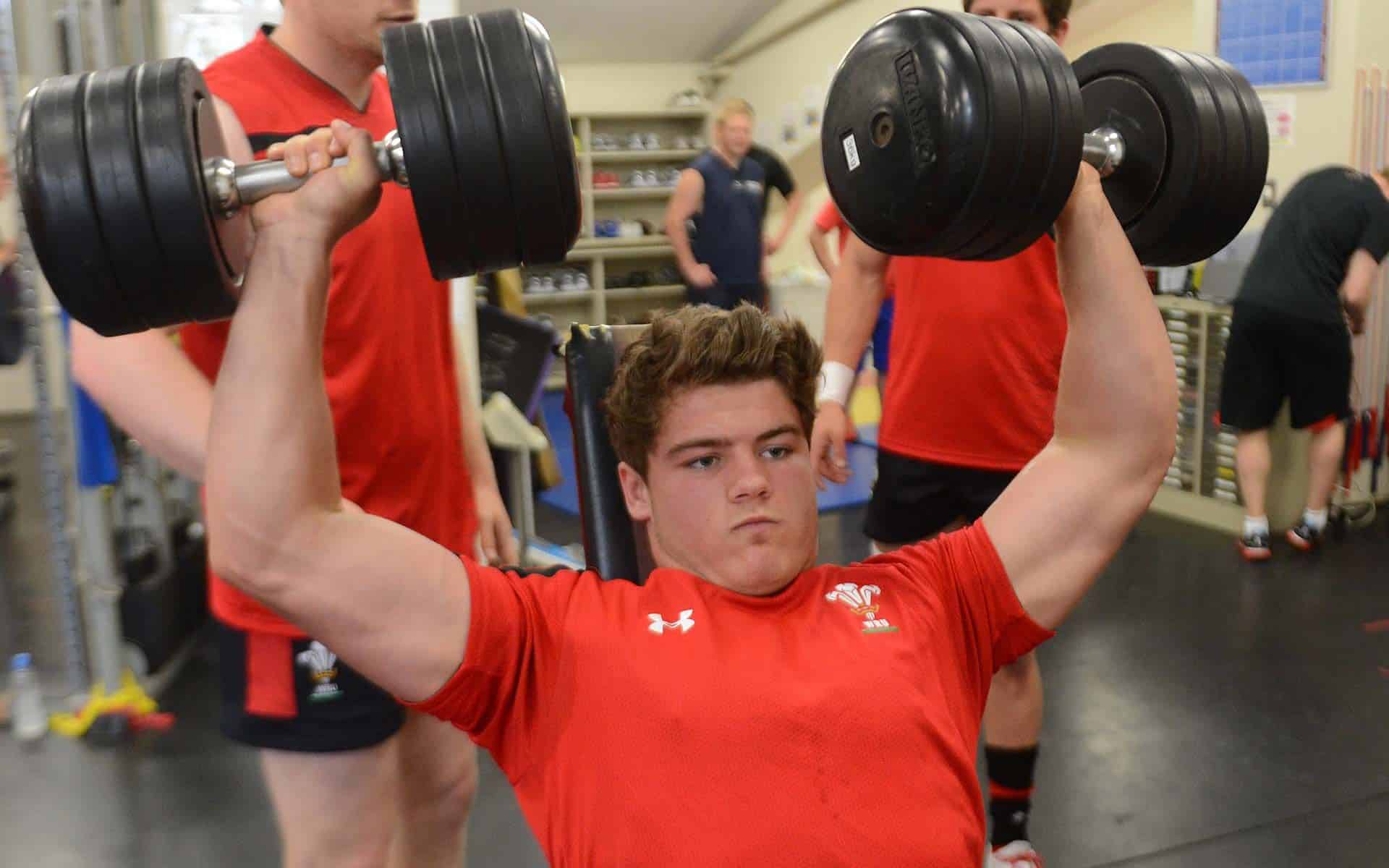Rugby is a physically demanding sport that requires strength, power, and endurance. In order to perform at their best, rugby players need to have a combination of cardiovascular fitness, speed, agility, and strength. Strength is particularly important for rugby players, as it helps to improve tackling, sprinting, jumping, and overall performance on the field. Whether you’re a seasoned rugby player or just starting out, building strength should be a key component of your training program. In this blog, we’ll provide 10 tips on how to get strong for rugby, including exercises, training techniques, and recovery strategies that can help you improve your strength and performance on the field.

- Prioritize compound exercises: Compound exercises like squats, deadlifts, bench presses, and rows work multiple muscle groups at once and are essential for building overall strength for rugby. These exercises stimulate the body to produce testosterone, which is a hormone that promotes muscle growth and strength development. They also help to improve coordination and balance, which are critical for rugby players to perform well on the field.
- Lift heavy weights: In order to get strong, you need to lift heavy weights. Lifting heavy weights stimulates muscle growth and promotes strength development. Aim to lift weights that are 80-85% of your one-rep max for 3-6 sets of 6-10 reps. This will allow you to challenge your muscles while still maintaining proper form.
- Focus on the big lifts: As a rugby player, you should focus on the big lifts like squats, deadlifts, and bench presses, as these exercises work multiple muscle groups and have the greatest impact on overall strength. These exercises help to improve power and explosiveness, which are crucial for rugby players to perform at their best.
- Train explosively: Rugby is a fast-paced sport that requires explosive power. Incorporate explosive exercises like plyometric jumps, power cleans, and medicine ball throws into your training. These exercises help to develop fast-twitch muscle fibers and improve explosive power, which is important for tackling, sprinting, and jumping.
- Train your core: A strong core is essential for rugby players, as it helps to stabilize the body during contact and change of direction. Incorporate exercises like planks, Russian twists, and hanging leg raises into your training to strengthen your core muscles.
- Incorporate functional training: Rugby players need to have functional strength, which means being strong in movements that are specific to the sport. Incorporate exercises like sled pushes, tire flips, and farmer’s carries into your training to improve functional strength.
- Train with a partner: Training with a partner can help to push you harder and provide motivation. You can also do partner exercises like medicine ball passes and partner carries, which are specific to rugby.
- Get enough rest and recovery: Rest and recovery are essential for building strength. Make sure to get enough sleep, eat a balanced diet, and take rest days to allow your muscles to recover.
- Consistency is key: Building strength takes time and consistency. Make sure to train regularly and stick to a plan. Consistency is key to seeing results.
- Seek professional guidance: If you’re new to strength training, it’s a good idea to seek guidance from a qualified coach or personal trainer. They can help you develop a training plan that’s specific to your needs and goals, and ensure that you’re using proper form to avoid injury.
FAQ
Q: Why is strength training important for rugby players? A: Strength training is important for rugby players because it helps to improve overall performance on the field. Strength is essential for tackling, sprinting, jumping, and other physical aspects of the game. Additionally, strength training can help to prevent injury and improve recovery time.
Q: What are some key exercises for rugby strength training? A: Some key exercises for rugby strength training include squats, deadlifts, bench presses, rows, plyometric jumps, power cleans, and medicine ball throws. These exercises work multiple muscle groups and help to improve power and explosiveness, which are important for rugby players.
Q: How often should rugby players strength train? A: Rugby players should aim to strength train 2-3 times per week, depending on their schedule and other training activities. It’s important to allow for proper rest and recovery between training sessions to avoid overtraining and injury.
Q: Should rugby players focus on specific muscle groups? A: While it’s important to work all muscle groups, rugby players should focus on exercises that target the muscles that are most important for the sport. This includes exercises for the legs, core, back, and chest.
Q: Can rugby players train for strength during the season? A: Yes, rugby players can continue to train for strength during the season. However, it’s important to adjust training intensity and volume based on game and practice schedules to avoid overtraining and fatigue.
Q: What role does nutrition play in rugby strength training? A: Nutrition plays a key role in rugby strength training. It’s important to eat a balanced diet that includes protein, carbohydrates, and healthy fats to support muscle growth and recovery. Additionally, staying hydrated is essential for optimal performance on the field.
In conclusion, strength training is an essential component of a rugby player’s training program. By prioritizing compound exercises, lifting heavy weights, and training explosively, rugby players can improve their strength, power, and overall performance on the field. Incorporating functional training, core exercises, and partner workouts can also help to develop functional strength and improve teamwork. It’s important to remember that building strength takes time and consistency, and proper rest and recovery are essential for avoiding injury and seeing results. By following these 10 tips for rugby strength training and staying committed to a consistent training program, rugby players can improve their performance and achieve their goals on the field.
